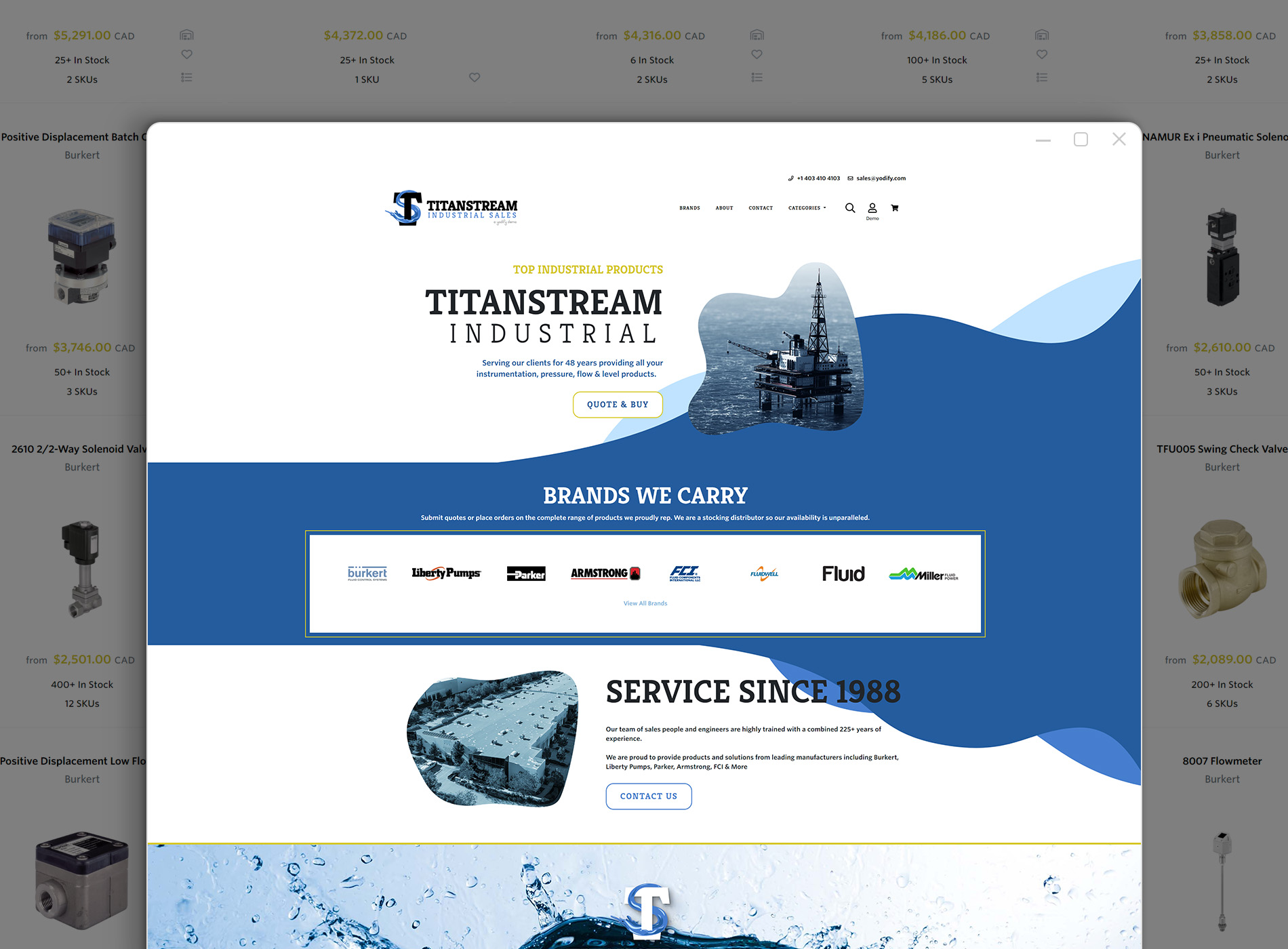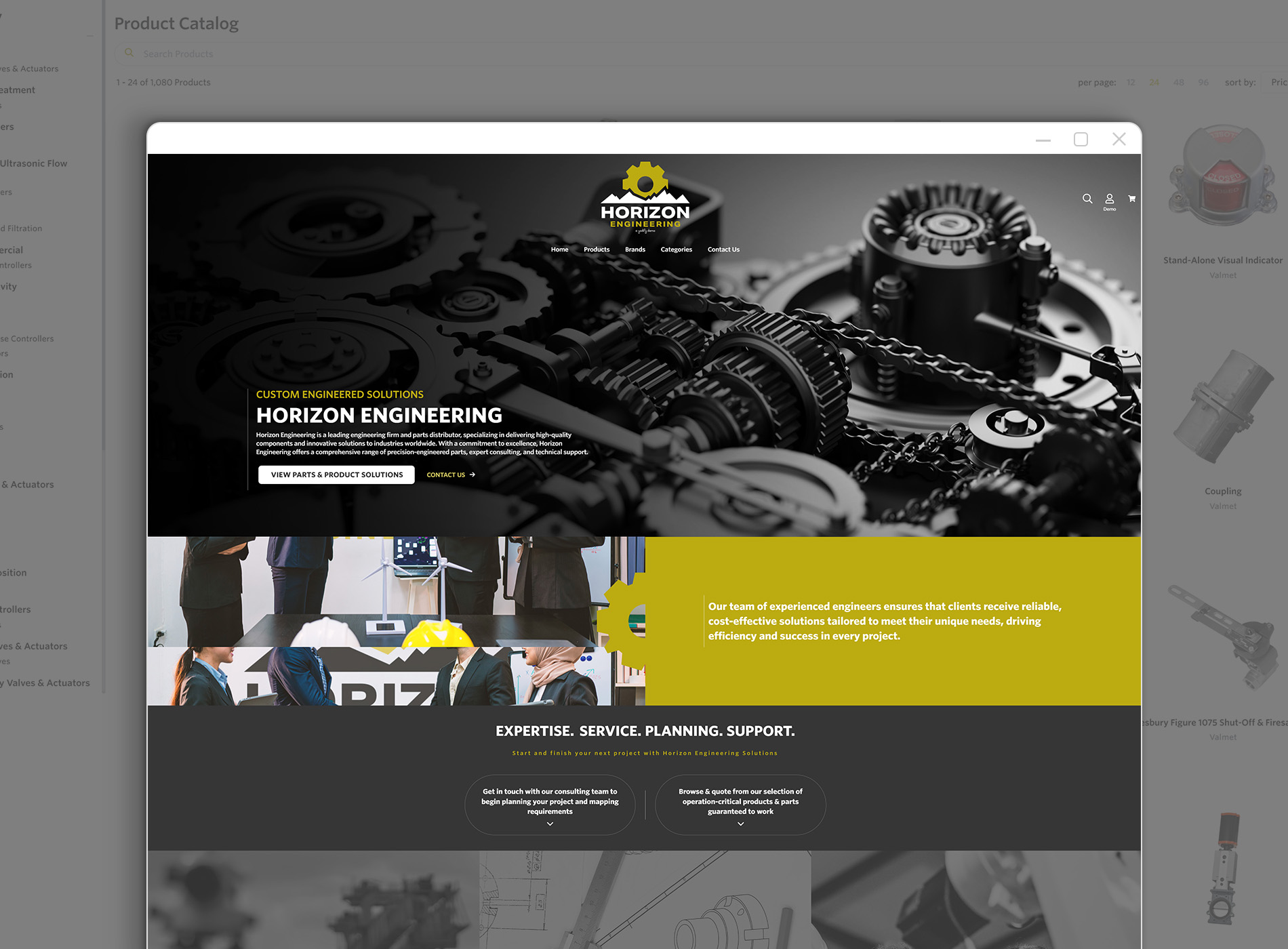Yodify Product Library
Add the TecJet™ 52 Gen II to your store or catalog
Book Your Demo and See How
or create your store
TecJet™ 52 Gen II
Brand: WoodwardEfficiency, performance, and emissions. In today's marketplace, these factors play a key role in gas engine development.
As engine performance advances are made, gas metering devices should be more flexible and accurate, and be used for a wide range of gas qualities from butane down to landfill gas.
The TecJet™ is an electronic gas metering valve for single point injection. It has integrated sensors and electronics, which provide the correct gas flow under all specified conditions.
Features- Enable fuel blending when used in conjunction with Woodward E3 fuel blending system
- Improved water ingress (UL/CSA Type 4) over previous generation
- Drop-in replaceability with previous TecJet 52
- New platform has smaller package size and lower weight, with multiple mounting options
- Improved, contamination- and sour-fuel-resistant shaft sealing
- Bi-directional communication via CANbus, CANopen, J1939, or custom CAN
- Improved dynamic response & repeatability over TecJet 50 Plus and TecJet 52
- Flow testing ensures that the engine does not have to be recalibrated if TecJet is replaced
- Compensates for gas pressure and gas temperature fluctuations
- Fully backward compatible with the TecJet 50 Plus and TecJet 52
Specifications
Brand
Weight
- 14.7 kg (32.5 lb)
Size
- 52 mm
Valve Maximum Geometric Area
- 1310 mm² (2.03 in²)
Input Voltage Range
- 18-32 Vdc
Input Current Range
- =1 A @ 24 Vdc steady state, 3.75 A @ 24 Vdc transient
Steady State Ambient
- -20 to +85° C (-4 to +185° F)
Long Term Storage
- -40 to +40° C (-40 to +104° F)
Short Term Storage
- -40 to +105° C (-40 to +221° F)
Fuel Gas Inlet
- 0 to +85° C (+32 to +185° F)
Inlet to Outlet Delta
- 69 to 345 mbar (1 to 5 psid)
Required Filter in the Gas Stream
- Maximum mesh size 50 µm
Flow Accuracy
- ± 20 % point accuracy - > Crank to Idle flow rate
- ± 10 % point accuracy - > Idle to 25 % valve Max. rated mass flow
- ± 6 % point accuracy - > > 25 % valve Max. rated mass flow
- —Add an additional 1.5 %, 1 %, and 0.5 %, respectively, to flow accuracy values listed if inlet to outlet delta is greater than 276 mbar (4 psid).
Dynamics Position Response
- -3 db at > 7 Hz, with 1400 %/second slew rate limit, 2 ms dead time. Overshoot 7 Hz, with 1400 %/second slew rate limit, 2 ms dead time. Overshoot 7 Hz, with 1400 %/second slew rate limit, 2 ms dead time. Overshoot 7 Hz, with 1400 %/second slew rate limit, 2 ms dead time. Overshoot 7 Hz, with 1400 %/second slew rate limit, 2 ms dead time. Overshoot 7 Hz, with 1400 %/second slew rate limit, 2 ms dead time. Overshoot 7 Hz, with 1400 %/second slew rate limit, 2 ms dead time. Overshoot 7 Hz, with 1400 %/second slew rate limit, 2 ms dead time. Overshoot 7 Hz, with 1400 %/second slew rate limit, 2 ms dead time. Overshoot 7 Hz, with 1400 %/second slew rate limit, 2 ms dead time. Overshoot 7 Hz, with 1400 %/second slew rate limit, 2 ms dead time. Overshoot 7 Hz, with 1400 %/second slew rate limit, 2 ms dead time. Overshoot 7 Hz, with 1400 %/second slew rate limit, 2 ms dead time. Overshoot 7 Hz, with 1400 %/second slew rate limit, 2 ms dead time. Overshoot 7 Hz, with 1400 %/second slew rate limit, 2 ms dead time. Overshoot 7 Hz, with 1400 %/second slew rate limit, 2 ms dead time. Overshoot 7 Hz, with 1400 %/second slew rate limit, 2 ms dead time. Overshoot 7 Hz, with 1400 %/second slew rate limit, 2 ms dead time. Overshoot 7 Hz, with 1400 %/second slew rate limit, 2 ms dead time. Overshoot 7 Hz, with 1400 %/second slew rate limit, 2 ms dead time. Overshoot 7 Hz, with 1400 %/second slew rate limit, 2 ms dead time. Overshoot 7 Hz, with 1400 %/second slew rate limit, 2 ms dead time. Overshoot 7 Hz, with 1400 %/second slew rate limit, 2 ms dead time. Overshoot 7 Hz, with 1400 %/second slew rate limit, 2 ms dead time. Overshoot 7 Hz, with 1400 %/second slew rate limit, 2 ms dead time. Overshoot 7 Hz, with 1400 %/second slew rate limit, 2 ms dead time. Overshoot 7 Hz, with 1400 %/second slew rate limit, 2 ms dead time. Overshoot 7 Hz, with 1400 %/second slew rate limit, 2 ms dead time. Overshoot 7 Hz, with 1400 %/second slew rate limit, 2 ms dead time. Overshoot 7 Hz, with 1400 %/second slew rate limit, 2 ms dead time. Overshoot 7 Hz, with 1400 %/second slew rate limit, 2 ms dead time. Overshoot 7 Hz, with 1400 %/second slew rate limit, 2 ms dead time. Overshoot < 1 %
Demanded Flow Response
- Same as position loop response with addition of 3 ms flow loop update rate
Pressure Change Rejection
- Same as demanded flow response with addition of 10 ms lag on P1 measurement, 100 ms lag on delta pressure
Vibration
- Random Vibration: Exceeds WGC RV2, 10-2000 Hz @ 0.1 G²/Hz (12.8 Grms)
Shock
- Per US MIL-STD-810C, Method 516.2, Procedure 1 (40 g)
Communication/Command Signals
- CAN
- PWM: 7 to 32 V differential input, 12 bit resolution, 40 kΩ impedance 4-20 mA Analog: 225 Ω impedance, differential, 25 mA ± 2 % max. input current
- Customer specific input
- The TecJet™ valve, together with an engine control system, form an ideal combination for operating gas engines with a gas specific gravity from 0.4 to 2.0.
- The TecJet 52 gas control valve is applicable for stationary applications within a power range of 210–800 kW for low-BTU specialty gas and 500–1500 kW for pipeline-quality natural gas.
- This range is also dependant on other factors such as fuel pressure, fuel differential pressure across the valve, fuel temperature, etc.
- Consult the applicable TecJet Installation and Operation manual or a Woodward application engineer for actual sizing of a valve.


